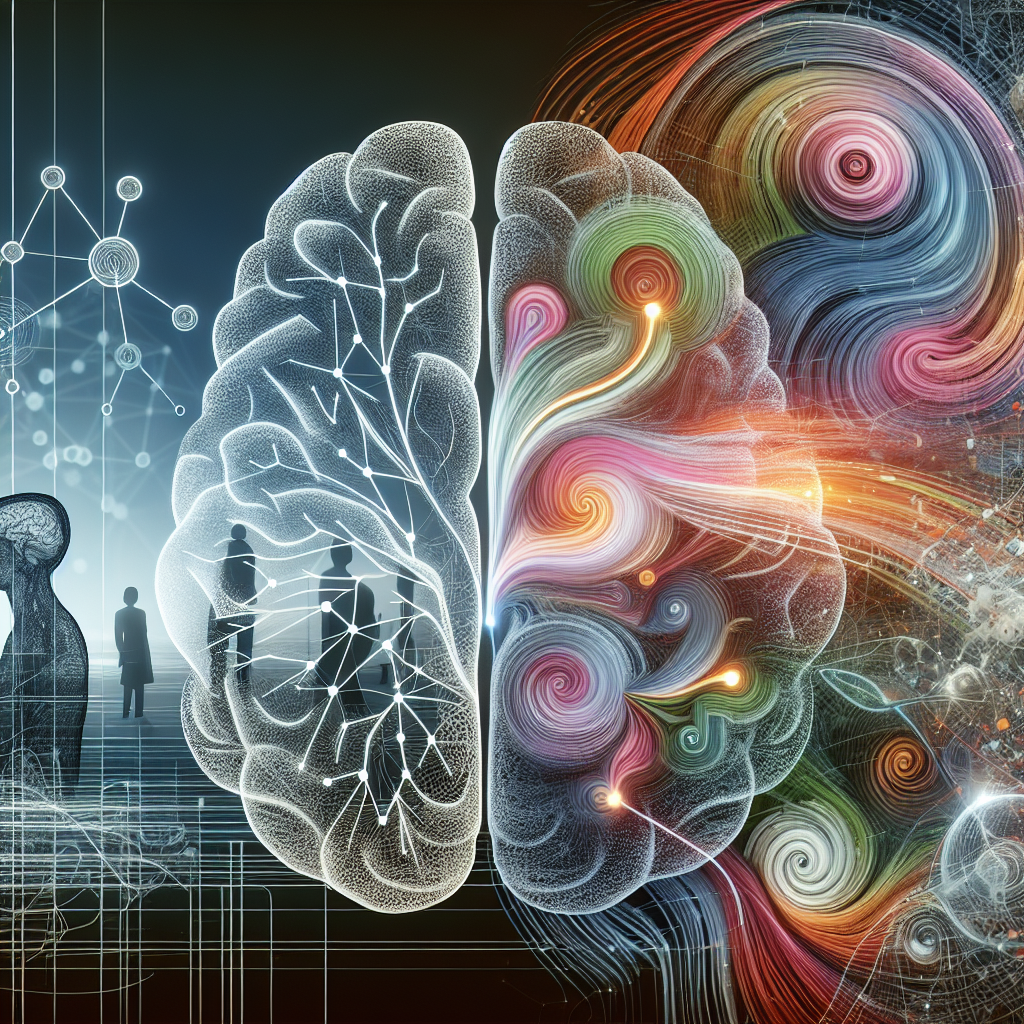The Intersection of Neuropsychology and Mental Health: Understanding the Connection
Neuropsychology and mental health are two disciplines that are closely intertwined, with each field informing and influencing the other. Neuropsychology is the study of how our brain functions and how it affects our behavior, emotions, and thoughts. Mental health, on the other hand, focuses on the diagnosis, treatment, and prevention of mental disorders. Understanding the intersection of these two fields can provide valuable insights into how our brain health impacts our mental well-being.
Neuropsychology and Mental Health: How are they Connected?
Neuropsychology and mental health are connected through the intricate relationship between the brain and mental functioning. The brain is the control center of the nervous system, responsible for regulating our thoughts, emotions, and behaviors. When there is a disruption in brain function, it can lead to changes in mental health.
Neuropsychological assessments are often used to evaluate cognitive and emotional functioning in individuals with mental health disorders. These assessments can help clinicians understand how the brain is impacting an individual’s mental health and guide treatment decisions. For example, a neuropsychological assessment may reveal cognitive deficits in a patient with depression, which can inform the type of therapy or medication that is most appropriate.
Likewise, mental health disorders can also impact brain function. For example, chronic stress and anxiety can lead to changes in the brain, such as decreased volume in the hippocampus and prefrontal cortex. Understanding these changes is essential for developing effective treatments for mental health disorders.
Common Mental Health Disorders with Neuropsychological Components
Several mental health disorders have neuropsychological components, meaning that they are influenced by brain function. Some common mental health disorders with neuropsychological components include:
– Depression: Depression is a mood disorder characterized by persistent feelings of sadness and loss of interest in activities. Neuropsychological assessments can reveal cognitive deficits in individuals with depression, such as impairments in executive functioning and working memory.
– Anxiety Disorders: Anxiety disorders are a group of mental health conditions characterized by excessive worry and fear. Neuropsychological assessments can identify deficits in attention and emotional regulation in individuals with anxiety disorders.
– Schizophrenia: Schizophrenia is a severe mental health disorder characterized by disruptions in thinking, perception, and behavior. Neuropsychological assessments can help identify cognitive deficits in individuals with schizophrenia, such as impairments in memory and executive functioning.
– Traumatic Brain Injury (TBI): TBI is a condition caused by a blow or jolt to the head that disrupts normal brain function. Individuals with TBI may experience cognitive deficits, such as impairments in attention, memory, and problem-solving skills, which can impact their mental health.
The Role of Neuropsychology in Mental Health Treatment
Neuropsychology plays a crucial role in mental health treatment by providing valuable insights into brain function and its impact on mental health. Neuropsychological assessments can help clinicians develop more targeted and effective treatment plans for individuals with mental health disorders.
For example, neuropsychological assessments can help clinicians identify cognitive deficits that may be contributing to an individual’s symptoms of depression or anxiety. By addressing these cognitive deficits through cognitive remediation therapy or medication, clinicians can improve the individual’s mental health outcomes.
Neuropsychologists can also help monitor the effects of mental health treatments on brain function. For example, neuropsychological assessments can track changes in cognitive functioning following treatment for schizophrenia or TBI, which can inform ongoing treatment decisions.
Frequently Asked Questions (FAQs)
Q: What is the difference between neuropsychology and psychiatry?
A: Neuropsychology is a branch of Psychology that focuses on the relationship between the brain and behavior. Psychiatrists are medical doctors who specialize in the diagnosis, treatment, and prevention of mental disorders. While neuropsychologists may conduct assessments to evaluate cognitive and emotional functioning, psychiatrists focus on prescribing medication and providing psychotherapy for mental health disorders.
Q: How can neuropsychology help individuals with mental health disorders?
A: Neuropsychology can help individuals with mental health disorders by providing valuable insights into how their brain function is impacting their symptoms. Neuropsychological assessments can identify cognitive deficits that may be contributing to their mental health symptoms, allowing clinicians to develop more targeted and effective treatment plans.
Q: Are neuropsychological assessments invasive?
A: Neuropsychological assessments are non-invasive and typically involve completing tasks and questionnaires that evaluate cognitive and emotional functioning. These assessments are conducted by trained neuropsychologists in a clinical setting and are painless for the individual undergoing the assessment.
Q: Can neuropsychology help individuals with traumatic brain injuries (TBI)?
A: Yes, neuropsychology plays a critical role in the assessment and treatment of individuals with TBI. Neuropsychological assessments can help identify cognitive deficits in individuals with TBI, which can guide rehabilitation and treatment decisions to improve their cognitive and emotional functioning.
Q: How can individuals benefit from the intersection of neuropsychology and mental health?
A: Individuals can benefit from the intersection of neuropsychology and mental health by receiving more targeted and effective treatment for their mental health disorders. By understanding how the brain is impacting their mental health, clinicians can tailor treatment plans to address cognitive deficits and improve outcomes for individuals with mental health disorders.




Leave A Comment